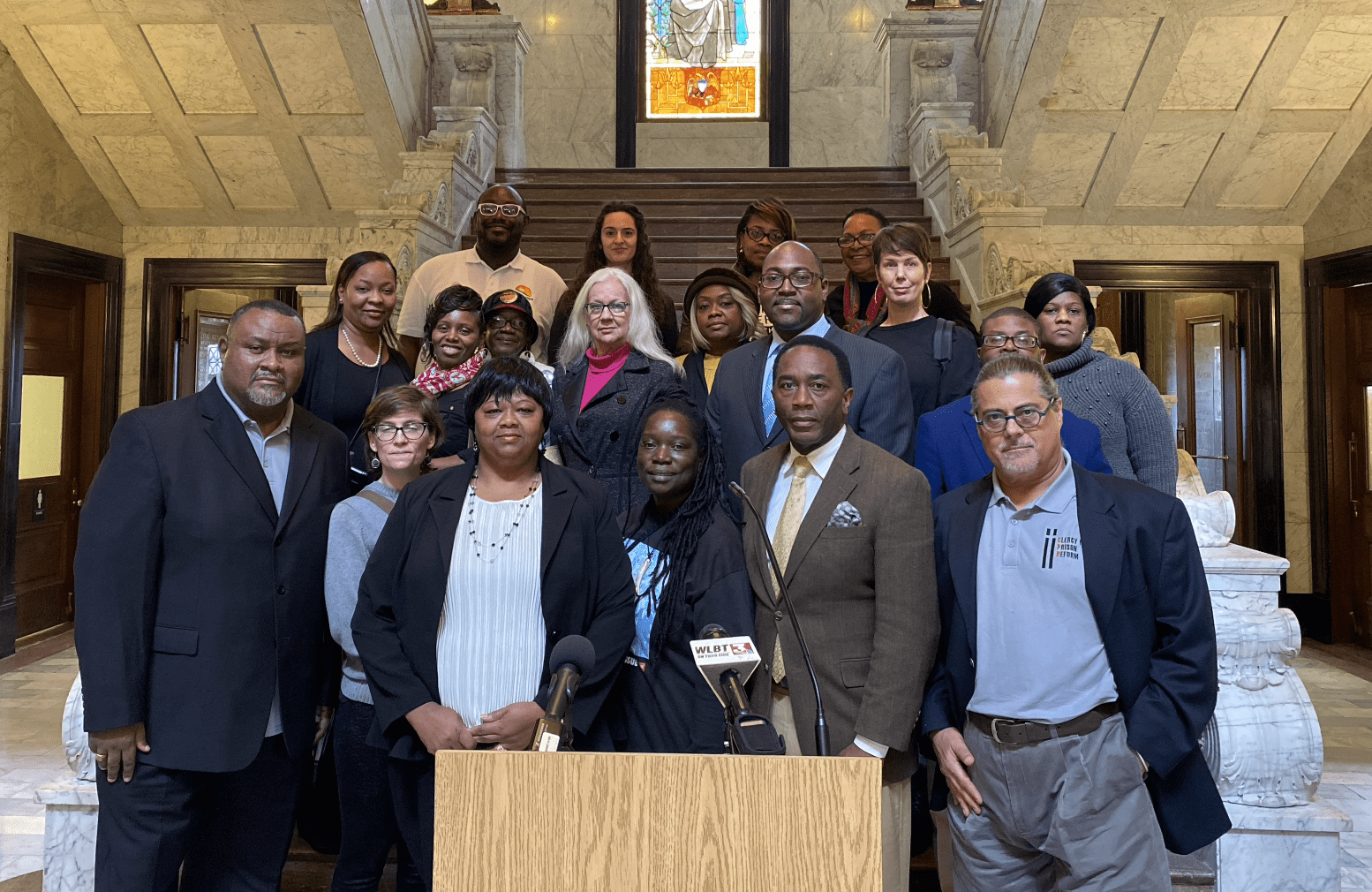
The Mississippi Legislative Black Caucus (MLBC) presented their policy agenda for 2020 on Wednesday. The caucus’ purpose is for the “advancement, and when necessary, the defeat, of legislation impacting Mississippi’s African American population,” and consists of members of the Mississippi Senate and House of Representatives.
As for healthcare, the MLBC acknowledged heir “failure” in the past to implement adequate healthcare reforms because there is not an easy solution. They do, however, hope to see the expansion of Medicaid in the near future. The MLBC claims that Mississippi is one of fourteen states in the Union that are “refusing” to expand Medicaid to the citizens of the state and that Mississippians’ health and finances will continue to worsen because of it. Secondly, the MLBC would also like to see the state look into the infant mortality and maternal health crisis. Mississippi has the highest infant mortality rate, as well as the fact that black Mississippi women are three times more likely to die from child birth complications. The last piece of policy related to healthcare covered the welfare of Mississippi seniors and the disabled, noting that the State’s elderly population is growing and it is up to the Legislature to make sure that they have the best possible healthcare available to them due to the fact many are unemployed. The MLBC’s legislative action pertaining to healthcare will include (but are not limited to):
- Introduce and seek to advance legislation in the Mississippi Senate and House of Representatives expanding Medicaid coverage to all Mississippians earning below 133% of the federal poverty level.
- Oppose barriers to access. Unnecessary co-pays, illegal work and fraudulent reporting undermine the health and well-being of all Mississippians.
- Oppose any effort to turn Medicaid into a block grant. Block grants are nothing new. Simply stated, block grants are just another way to cut Medicaid.
- Introduce legislation in the Mississippi Senate and House of Representatives that extends maternal Medicaid coverage to twelve (12) months after the end of a pregnancy.
- Ensure access to substance use and mental health services for pregnant and postpartum women, including community-based, Telehealth and faith-based care.
- Provide community-based home-visitation and pregnancy support services to low income mothers and children.
- Introduce legislation in the Mississippi Senate and House of Representatives that offers qualifying seniors benefits under Program of All-Inclusive Care for the Elderly (PACE). For people who are eligible, PACE’s comprehensive service package enables them to remain in their community rather than receive care in nursing, convalescent or personal care homes. Other benefits of PACE include capped financing for the program, which allows providers to deliver virtually all of the health services the participants need.
- Advocate for sufficient funding to eliminate the waiting list for Medicaid’s Elderly and Disabled Waiver Program
The MLBC’s education agenda consisted of making sure public schools are being properly funded, addressing the “teacher shortage” crisis, and also addressing the steadily lowering number of college-educated graduates. The MLBC says that the Mississippi Adequate Education Program (MAEP) has continually had problems, but the biggest issue is underfunding. The MAEP was originally set up to “provide equitable funding to all local school districts,” and was to make sure every child in Mississippi received a quality education, regardless of their zip code. In 2007, the Mississippi Department of Education issued 7,620 teacher licenses, but in 2017, only 603 licenses were given out. In 2014, 1,578 Mississippi students at a Mississippi College graduated. In 2018, that number dropped to only 936. The MLBC’s legislative action pertaining to education will include (but are not limited to):
- Introduce legislation in the Mississippi Senate and House of Representatives that calls for funding of each public school district in the State of Mississippi according to Mississippi law.
- Mandate the Legislature dedicate 25% od year over year revenue growth toward the funding of MAEP
- Introduce legislation in the Mississippi Senate and House of Representatives to allow for up to ten percent (10% non-certified teachers in core areas. Implementing this change in the law will allow public schools to be more closely aligned with the twenty-five (25%) standard applicable to Mississippi’s charter schools.
- Allow teachers with passing Praxis scores in certain subject areas to be certified to teach in those areas regardless of their scores in other subject areas.
- Modify the ACT requirement to allow teacher certification if a student has an ACT score of 21 or a 3.0 grade point average.
- Strive to increase teacher pay to the southeastern average and develop a plan to ensure teachers’ rate of pay will remain consistent with the southeastern average.
- Advocate for tuition forgiveness for educators who teach in economically depressed areas for a minimum of five (5) years.
- Eliminate the Teacher recognition Program and use the $24 million associated with it to hire more teachers in low performing districts or increase teacher pay.
Regarding economic justice, the MLBC says they “have been committed to the progress and financial empowerment of African Americans throughout the State of Mississippi.” The MLBC considers the fact that Mississippi is the only state without a law(s) that prohibit discriminatory lending a critical issue. Legislation must be passed to prohibit this act, as well as to keep financial institutions other than banks from participating in this discriminatory practice. The adoption of the Uniform Partition of Heirs Property Act (which helps preserve inherited land and makes sure it all is in the ownership of the inheritor and out of the hands of real estate speculators), increased funding to Mississippi’s historically black colleges, disparity studies, employer-based lines of credit, small contactor exemption on performance bonds, small business inclusion of hemp production, equal pay laws, and childcare tax credits are all important to the MLBC this session and forward. The MLBC’s legislative action pertaining to economic justice will include (but are no limited o):
- Introduce legislation in the Mississippi Senate and House of Representatives to promote transparency and establish remedies at law to penalize financial institutions engaging in dissimilatory lending.
- Codify the Uniform Partition of Heirs Property Act (UPHPA) to help preserve the wealth of Mississippi families and increase opportunities for real property to be passed to the next generation. The UPHPA establishes a set of law and procedures to define heir property and allow those properties to be partitioned for ultimate sale or ownership. Codifying the UPHPA will improve the negative impact partition sales tend to have on a broad cross section of poor and disadvantaged minorities.
- Introduce legislation to implement disparity studies, employer-based lines of credit, small contractor exemption on performance bonds, small business inclusion in hemp production and child care tax credits
Just as everyone is talking about criminal justice/prison reform, the MLBC also released their criminal justice agenda. The MLBC plans to confer with agency directors, advocacy groups, law enforcement officers, etc. to determine the best solution for the State’s current problems regarding the justice system. The caucus is looking to see the release of incarcerated person’s for non-violent offences and juveniles sentenced to life without parole, and to examine the habitual offender laws to be modified. They also called for the halt of deaths occurring at traffic stops and other “random” locations with law enforcement officers, not only in the State, but Nation-wide. The MLBC’s legislative action pertaining to criminal justice will include:
- Devise a plan to introduce legislation in the Mississippi Senate and House of Representatives that balances the release and re-entry of individuals in MDOC custody with matters of public safety, overcrowding and under-staffing.
- Advocate for protocols for use of body worn cameras by law enforcement agencies.
- Implement civil penalties for the possession of a quantified or designated amount of marijuana.
- Oppose any and all efforts to implement legislation commonly referred to as “gang bills” that criminalize activity that is otherwise lawful or the enforcement of which promotes racial profiling.
The final piece of policy on the MLBC’s agenda was election reform. The caucus acknowledged that Mississippi has come a long way with its voting laws and that it “was ground zero for instituting the voting rights we have access to today.” That said, they claimed the State still has many “hurdles” and that there must be policy introduced to take them down. The MLBC’s legislative action pertaining to election reform will include:
- Introduce legislation in the Mississippi Senate and House of Representatives to implement “no-excuse early voting” for the purpose of expanding voter access to the polls, improve poll worker performance, and increase voter satisfaction. (Thirty-nine (39) states already have early voting in place)
- Implement online voter registration, which has been shown to reduce the chances of errors, make registration easy, and be far les expensive than paper systems in the states that have it.
Introduce legislation in the Mississippi Senate and House of Representatives to restore voting rights for people who have completed their time of incarceration and been released from the
Stone Clanton, Reporter for Y’all Politics









